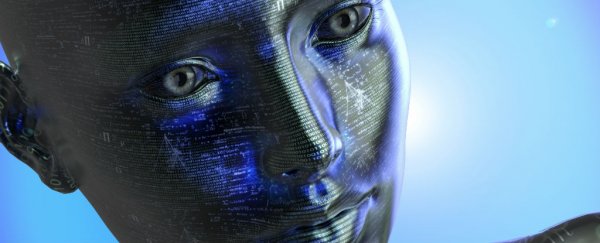You've heard it all before - all those prosthetics, implants, and genetic modifiers scientists are inventing right now are increasing the potential for the human body to be better, stronger, and faster in the future.
That's pretty cool, but also terrifying, because how far will we go to perfect our species? If flawless biology becomes the standard for our species, not one of us would escape the recycling bin - but, as the video below explains, the future of humanity depends on us chasing perfection.
In the TED talk below, futurist and Harvard researcher Juan Enríquez explains that fast-tracked evolution spurred on by fundamentally altered genes, organs, and cells is the only thing that will save humans from going the way of the non-avian dinosaurs.
Massive extinction events have already happened five times in Earth's history, which means it's very likely that humans will become extinct on Earth some day.
Be it from an asteroid, a disease outbreak, or a supervolcano - if history has taught us anything, our time in this conveniently habitable smidgen of the Universe is limited.
It's on us to prepare for this inevitability - however uncomfortable, ethically, that might seem right now.

"If you believe that extinctions are common and natural and normal, and occur periodically, it becomes a moral imperative to diversify our species," says Enríquez.
Take Mars, for example. If something happens to make life on Earth impossible for humanity in the future, we're going to need to have changed our biology enough to withstand the conditions of the Red Planet.
And that doesn't just mean getting implants to give us superhuman hearing, or exoskeletons to make us run faster - to survive in the rest of the Solar System, we need to become a Type III civilisation on the Kardashev Scale.
What does that mean? It means our species needs to become unrecognisable in order to survive.
"To become an intra-Solar System civilisation, we're going to have to create a Type III civilisation, and that looks very different from what we've got here," says Enríquez.
Watch the video above to find out what that would look like, and let's just say, humanity is in for one hell of a ride.
